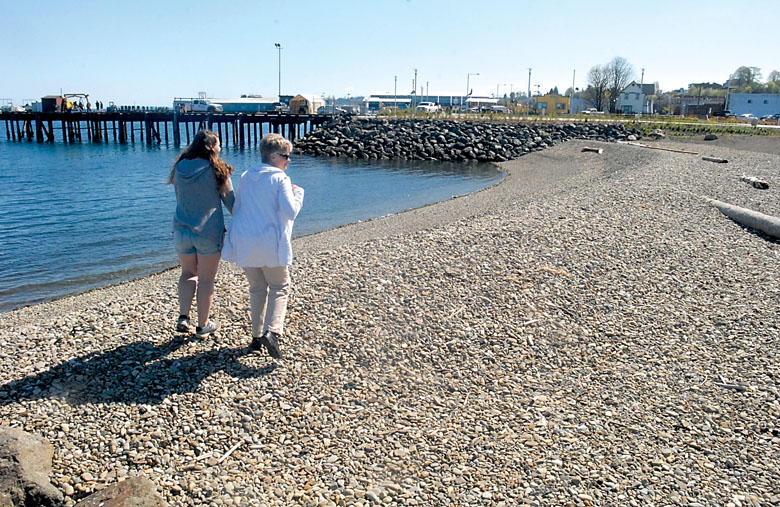PORT ANGELES — The Lower Elwha Klallam have a wealth of beaches to choose among for welcoming other tribes during the 2016 Canoe Journey in July.
The tribe has not yet decided which beach to use, Tribal Chairwoman Francis Charles said.
“We have a lot of options,” she said.
Lower Elwha Klallam singers could welcome visiting pullers at Hollywood Beach, where the landings have taken place for years; at the pocket beaches of Waterfront Park at the west end of Railroad Avenue, which opened to the public in September; or at the 80 to 100 acres of beach that has formed at the mouth of the Elwha River since the waterway was cleared of two dams.
Charles said a final decision will be made once tribal officials have more information about how many Canadian First Nations will trailer their canoes in on the MV Coho ferry or pull their way across the Strait of Juan de Fuca, expected weather conditions, security, safety for canoe pullers and access for trailered canoes.
This year’s Canoe Journey is a resumption of what had become an annual tradition after a one-year hiatus. No Paddle Journey was scheduled in 2015 because no tribe stepped forward to host that year.
This year, the Nisqually near Olympia will host the journey, meaning that tribes will converge on Nisqually land for a weeklong potlatch.
The 2016 Paddle to Nisqually will begin on the North Olympic Peninsula on July 15, when the Quinault will leave for the journey to Olympia.
The Quileute are expected to join the journey July 17 and the Makah at Neah Bay on July 18.
After an overnight stay at Pillar Point on July 19, a two-day stop is planned in Port Angeles on July 20-21, when paddlers from Canada are expected to join the journey.
The journey will continue to the Jamestown S’Klallam beach July 22 and will stop in Port Townsend on July 23. The Port Gamble S’Klallam will join the journey July 24.
Nisqually tribal members will meet the Canoe Journey pullers at Swantown Marina in Olympia on July 30.
Ceremonies and celebrations are planned through Aug. 6.
Dozens of tribes from Oregon to British Columbia are expected to take part in the annual trip using traditional carved and painted canoes, some pulling hundreds of miles to reach the final stop in Olympia.
The first canoe journey was the 1989 Paddle to Seattle, which was conceived by Quinault tribal member Emmet Oliver and Frank Brown of Bella Bella, B.C.
Oliver died March 8 at the age of 102.
The success of the Paddle to Seattle led to a Canoe Journey in 1993 to Bella Bella. It now is held mostly annually, with tribes taking turns hosting the destination.
Tribes in Oregon, Washington, British Columbia and Alaska gather teams of pullers for the journeys.
They leave their own shores in canoes and visit other tribal lands along the way. Before they land, they ask the host tribe or first nation for permission to come ashore.
Landing ceremonies include traditional welcoming songs and are followed by potlatches with meals, storytelling and the further exchange of traditional songs, dances and gifts.
The journey culminates at a different location each year in a weeklong potlatch and celebration of tribal cultures.
For more information, see www.paddletonisqually.com.
________
Reporter Arwyn Rice can be reached at 360-452-2345, ext. 56250, or at arice@peninsuladailynews.com.

